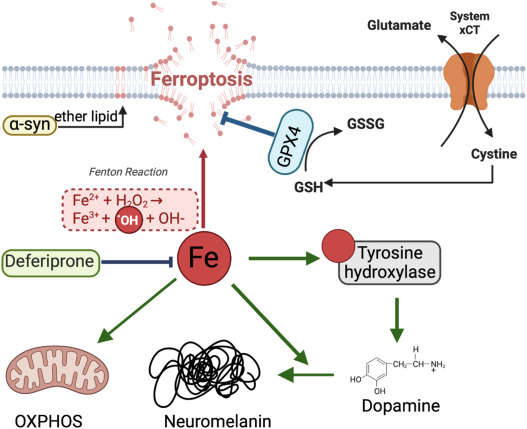
# Drug-Induced Iron Deficiency Modifies Gut Microbial Communities: A Fresh View on Parkinson’s Therapy
Parkinson’s disease, a progressive neurological condition, has traditionally been treated with an array of medications aimed at easing motor symptoms and enhancing quality of life. Nonetheless, new research highlights the unintentional effects that certain drugs may exert on the gut microbiome and, by extension, overall health. A compelling new study published in *Nature Microbiology* investigates how entacapone, a frequently prescribed medication for Parkinson’s, disturbs microbial equilibrium in the gut by inducing iron deficiency. This finding not only illuminates the wider influence of pharmaceuticals on gut health but also paves the way for refining personalized treatment strategies.
—
## Beyond Antibiotics: Medications and Microbiome Disruption
While medications are vital for managing chronic illnesses, their implications frequently extend beyond their intended effects. Although the havoc that antibiotics wreak on the gut microbiome is well established, non-antibiotic medications are increasingly acknowledged for their disruptive potential on microbial composition. The study, carried out by researchers from the University of Vienna, showcases how entacapone—a drug aimed at increasing dopamine levels in Parkinson’s patients—can inadvertently alter the microbial ecosystem within the gut.
Led by researchers Fatima Pereira and Michael Wagner, the team concentrated on two medications: entacapone and loxapine (employed for schizophrenia). By incubating human fecal samples with these drugs and utilizing advanced molecular techniques like Stimulated Raman Spectroscopy (SRS) and heavy water labeling, the researchers recorded subtle but important changes in microbial function that typically escape detection in standard studies.
—
## Iron Deficiency: The Catalyst for Gut Dysbiosis
The primary discovery of the research revolves around entacapone’s capacity to bind and sequester iron, a crucial micronutrient necessary for both human health and microbiome stability. This unintended outcome resulted in a phenomenon termed “iron starvation” in the gut environment. Limited iron availability created a favorable setting for opportunistic bacteria, such as *Escherichia coli* (*E. coli*), which inherently have highly effective iron absorption mechanisms through specialized molecules known as siderophores. While these bacteria thrived, other beneficial microbial species found it hard to endure.
Introducing supplemental iron to the fecal samples rectified these imbalances, strongly indicating that the dysbiosis in the gut caused by entacapone closely relates to iron availability. “By demonstrating that entacapone induces iron deficiency, we uncovered a new mechanism of drug-induced gut dysbiosis,” stated Michael Wagner, the senior author of the study. Significantly, the team observed that other medications featuring metal-binding catechol groups might similarly impact the microbiome, signaling the need for further exploration.
—
## The Importance for Patient Care
The ramifications of this study reach far beyond merely understanding drug-microbiome interactions; they present an opportunity to refine treatment protocols for patients. Parkinson’s disease is already linked with gastrointestinal problems such as constipation and bloating, which might worsen due to gut dysbiosis. Tackling entacapone-induced disruptions in the microbiome could enhance both gut health and the overall effectiveness of Parkinson’s treatments.
One potential intervention suggested by the researchers is ensuring sufficient iron delivery specifically to the large intestine, where microbial imbalances manifest. That said, any such strategy must carefully navigate potential unintended consequences elsewhere in the body, as excessive iron could potentially trigger oxidative stress and inflammation.
—
## Future Directions in Drug Development and Microbiome Research
This study underscores the increasing necessity for pharmaceutical research to incorporate gut health considerations in drug development pipelines. Gaining insight into how medications interact with essential nutrients and the microbiome could pave the way for therapies that not only address primary conditions but also reduce negative impacts on gut health.
Reformulated drugs, targeted nutrient supplementation approaches, and the creation of microbiome-friendly pharmaceuticals are all areas brimming with potential for exploration. Furthermore, sophisticated analytical methods like SRS, as utilized in this study, will be key in unraveling the intricate relationships among drugs, nutrients, and gut bacteria.
—
## A New Horizon in Personalized Medicine
As researchers continue to unveil the connections between the gut microbiome and overall health, it is becoming increasingly evident that personalized medicine must account for microbiome variability. For patients with Parkinson’s, an all-encompassing treatment strategy could potentially incorporate not only therapies to manage neurological symptoms but also individualized approaches to uphold gut microbial balance.
Entacapone’s impact on the microbiome by inducing iron deficiency may initially seem like a setback, but it essentially offers a valuable perspective. By addressing this side effect, healthcare providers and researchers have the chance to enhance therapy and improve patient outcomes.
—
### Key Terms Glossary
– **Microbiome:** The diverse assortment of microorganisms—bacteria, viruses, fungi, and more—that reside in the human body. The gut microbiome is crucial for digestion, immunity, and overall health.
– **Dysbiosis:** An imbalance or unhealthy state of the microbiome.